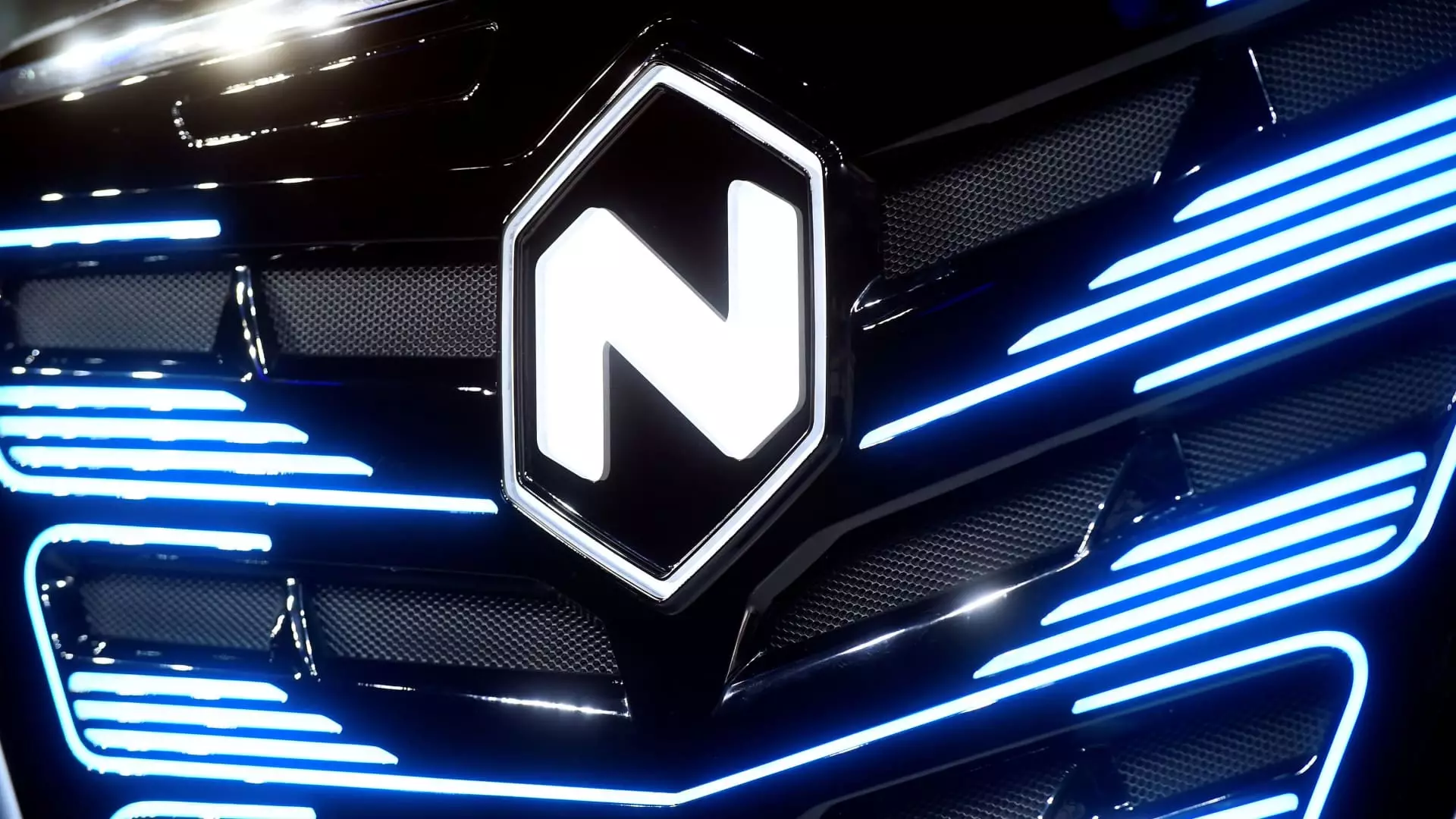Nikola Corp., once heralded as the shining star of the electric vehicle (EV) landscape, has tragically succumbed to the harsh realities of its ambitious beginnings. After a fervent rise from obscurity to a market valuation exceeding $30 billion, the company has now filed for Chapter 11 bankruptcy protection, citing a lack of viable buyers and the inability to secure additional funds necessary for its operations. This decision to seek bankruptcy is not merely procedural; it represents the culmination of a downward spiral fueled by scandal, mismanagement, and external market pressures.
The company finds itself with approximately $47 million in cash, enough to facilitate the bankruptcy process, conduct asset sales, and ideally emerge from Chapter 11. However, the bittersweet reality is that this once-promising startup is now seeking to auction its holdings, a situation many would consider a far cry from its lofty ambitions of revolutionizing the trucking industry with its all-electric and hydrogen-fuel-cell vehicles.
The Leadership Challenge: Promises Unfulfilled
Steve Girsky, Nikola’s CEO, acknowledged the significant market and economic factors that have hampered the company’s operations. He underscored the efforts of the management team to navigate these treacherous waters but ultimately conceded that these endeavors fell short. The decision to pursue bankruptcy was taken by the Board as the most prudent path forward, showcasing a leadership unequipped to cope with the magnitude of the challenges faced.
Girsky’s prior experience as both a bank analyst and a General Motors executive suggests potential acumen in navigating corporate complexities. However, amidst the shifting landscape of sustainability in transportation, his tenure at Nikola has seen dwindling capital resources and stagnation in production capacity. This begs the question: can strong leadership mitigate external challenges, or does it only serve to highlight deeper systemic issues within the company’s structure?
Nikola’s rise was not without its scandals. The fall of founder and former CEO Trevor Milton, who was convicted of fraud for misleading investors, not only tainted Nikola’s reputation but also triggered a wider scrutiny of the burgeoning EV market. The allegations posed a significant setback, initiated by Hindenburg Research, which spotlighted the dubious claims surrounding Nikola’s technological capabilities and production milestones.
Milton’s downfall serves as a stark reminder of the potential dangers associated with charismatic leadership, where the narrative can be compelling yet fraught with deceit. The fallout from his actions has reverberated through the organization, leading to investor distrust and subsequent financial implosion. Without transparency and accountability, a company’s potential can quickly become shadowed by the misdeeds of its leaders.
As Nikola Corp. enters auction proceedings for its assets, the future remains uncertain. The proposed bidding process, pending court approval, would allow potential buyers to acquire the company’s assets without the burden of its financial liabilities. Yet, the question remains: is there a viable business left to acquire? The EV market is flooded with competitors, many of which are also grappling with their own existential crises.
Girsky’s optimistic claims that Nikola is in discussions with several potential partners might be an attempt to reassure stakeholders, but actions speak louder than words. With production having only seen a modest number of vehicles rolled out, and a considerable number subject to recalls, skepticism pervades any notion of a recovery. Furthermore, the stock valuation plummeting to under $2 shares reflects the drastic reassessment by markets of Nikola’s viability.
A Lesson for the EV Industry
The downfall of Nikola Corp. serves as a poignant warning to investors and companies alike in the electric vehicle landscape. It highlights the perils of over-promising amidst ambitious aspirations and the unethical behavior that can easily erode trust. As the push towards a more sustainable future accelerates, it is imperative that stakeholders remain vigilant against the allure of quick profits and flashy proclamations.
Nikola’s story may serve as a cautionary tale, illuminating the need for thorough due diligence and ethical accountability in the rapidly evolving automotive landscape, where every promise must be backed by tangible results. In an era dominated by innovation, it’s clear that integrity and solid governance are just as vital as cutting-edge technology in determining a company’s longevity and success.

